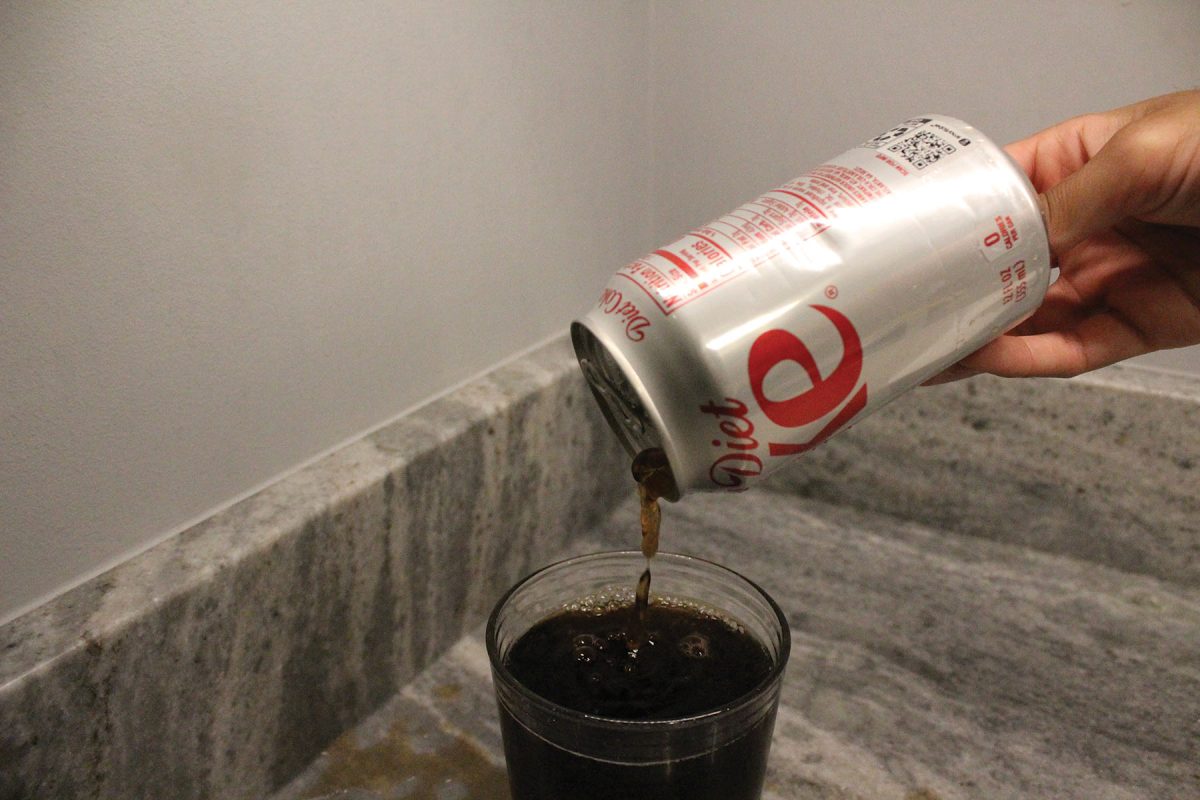When choosing between regular or diet Coke, senior Elana Abramson opts for the diet option.
“I want something like a tasty drink,” said Abramson. “I don’t always want water but it’s not always efficient to drink a bunch of calories, especially when there’s a different option.”
Drinks that are labeled as zero-calorie and zero-sugar include sugar substitutes that do not add any caloric or nutritional value to the drink.
“They’re not necessarily providing you with any type of nutrients,” said Melissa Prest, media spokesperson for the Academy of Nutrition and Dietetics. “So it’s kind of like a net zero. We’re not really adding any beneficial nutrients to our diet, but we are removing added sugars, which, for some people, that is what they’re looking for.”
There are many artificial sweeteners included in zero-calorie and zero-sugar drinks, such as aspartame, erythritol and sucralose.
Aspartame is the most commonly used sugar substitute in food products, drinks and pharmaceuticals, cardiologist Blair Suter said.
“Seeing patients who may [consume] more aspartame or may take more diet beverages, patients or people are at higher risk who have things that include obesity, diabetes, and then stomach issues and other gastrointestinal issues,” Suter said.
According to epidemiologist Sharon Fowler, her primary concern is that aspartame may link to neurological problems.
“[Diet drinks] sound healthy, like no sugar, zero calories,” said Fowler. “It sounds really healthy, but I don’t think people realize how much artificial sweeteners [are] in these things, and the manufacturers are not required to list the number of milligrams of each of these artificial sweeteners that they’re putting into these products. So people, I think, are getting larger doses than they would have signed up for.”
According to Suter, both regular and diet drinks are associated with some of the same negative health consequences, such as obesity, type 2 diabetes and hypertension.
Alternative drink options such as teas and coffees are made with less sweeteners and have natural antioxidants.
“So you want to try to think about, let’s consume more water in the day, or even water that maybe is flavored with [a] squeeze [of] some limes or lemons in there,” said Prest. “You can even do like a clear sparkling water, mix it with a little bit of juice to give it a little bit [of] flavor. So you want to kind of get your beverages more from less processed sources before we go for the more processed ones when we get kind of our non-nutritive beverages.”
According to Abramson, she will sometimes look for drinks that are sweetened naturally with monk fruit.
“There’s this lemonade that I like that’s low [in] calories, and then also it’s not like having aspartame or stuff like that,” said Abramson. “But that’s not always possible. So the second best thing is, I’d prefer a diet drink.”


